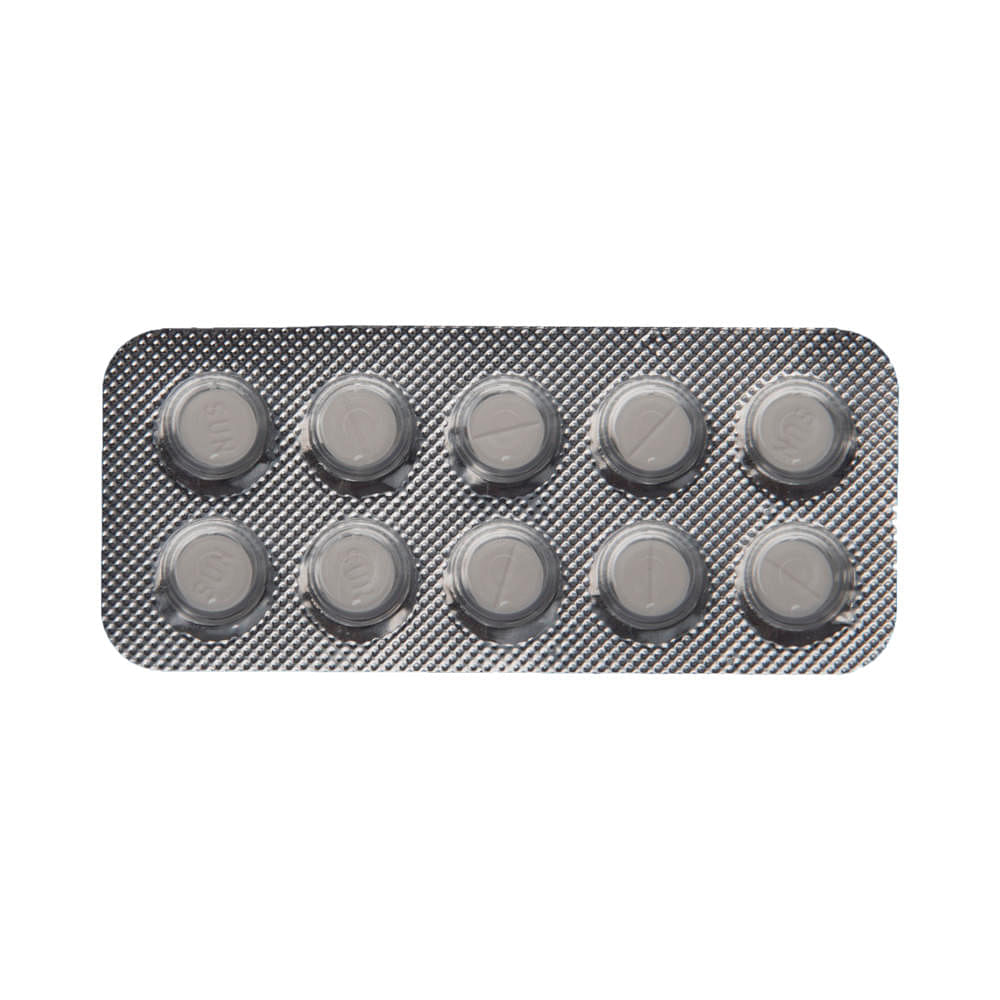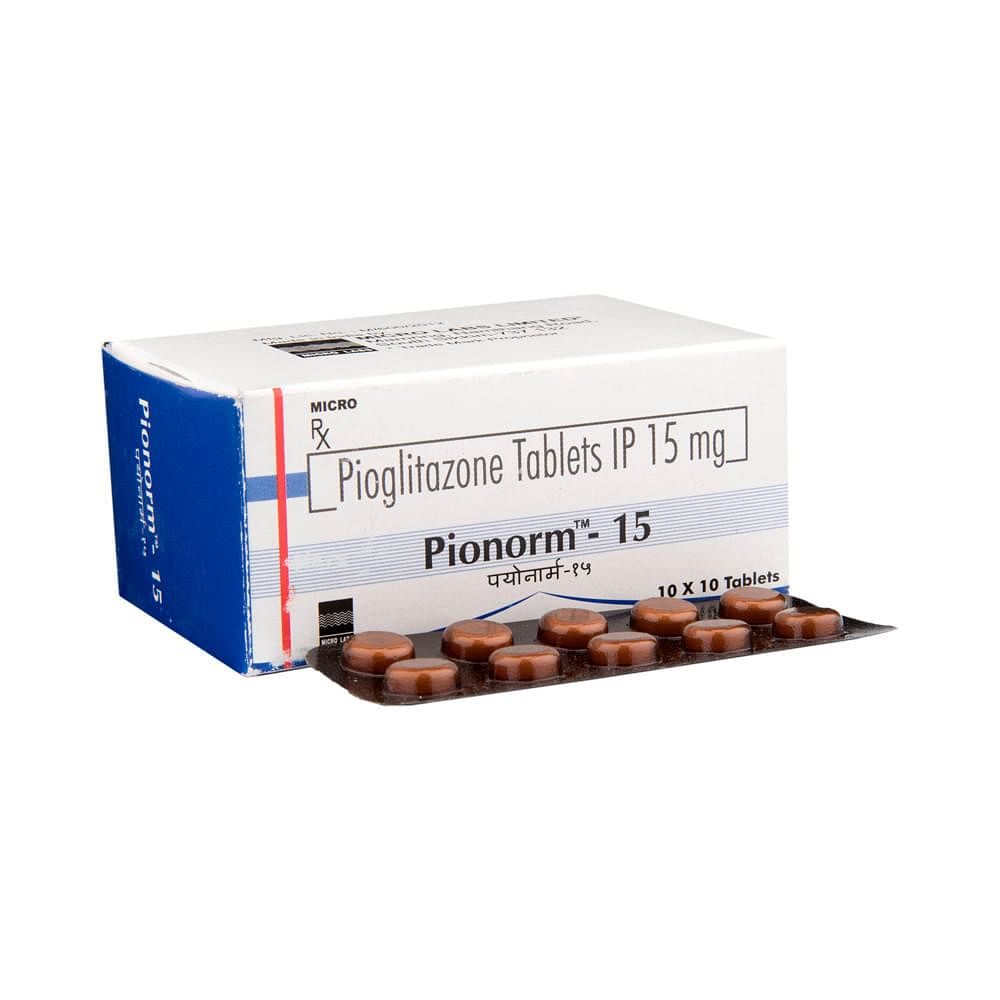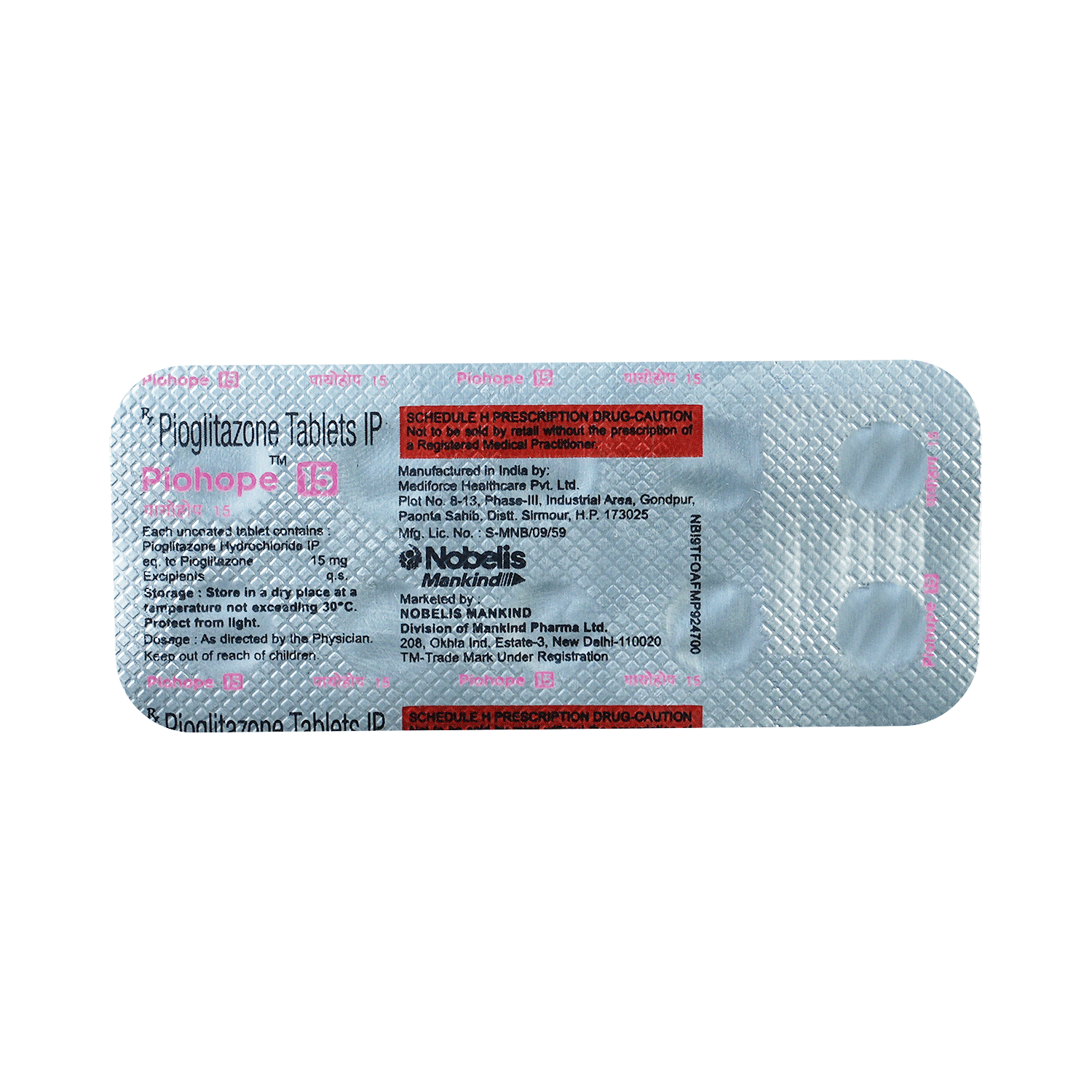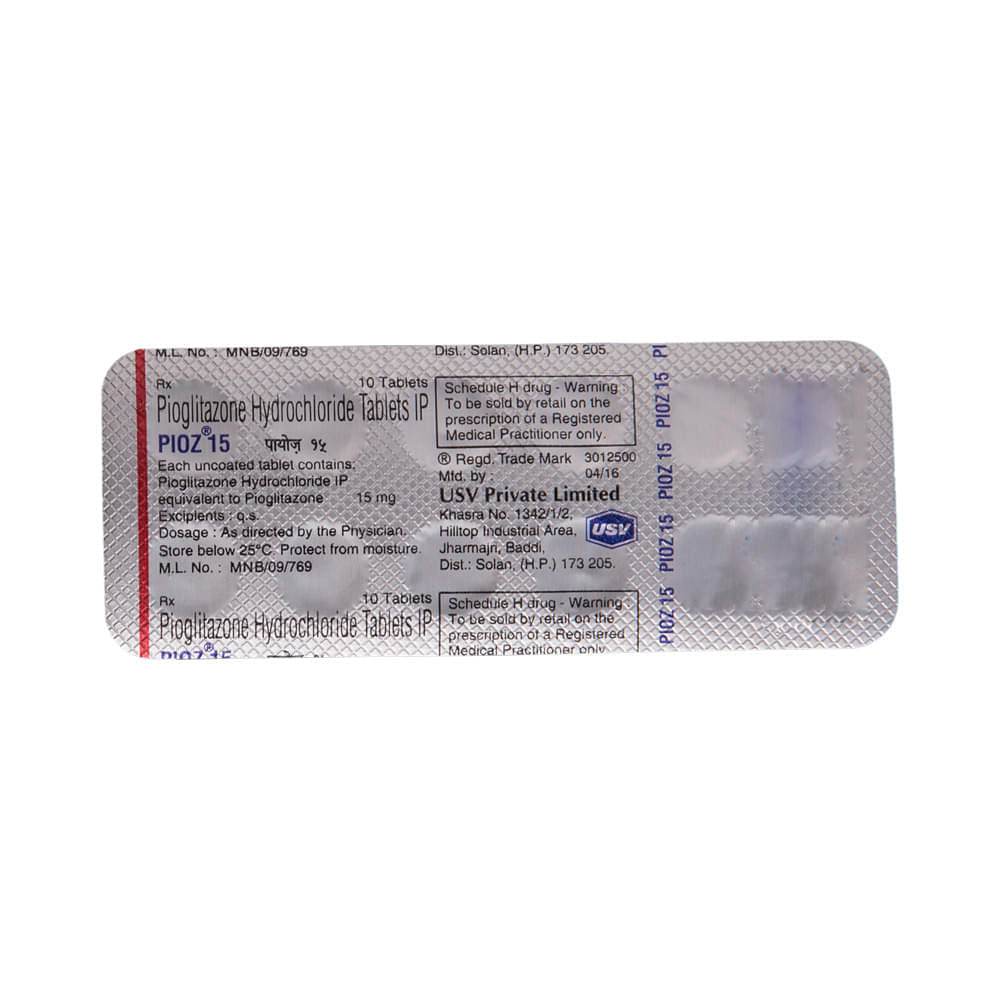
Glycopy 15mg Tablet
Manufacturer
Trio Remedies Pvt Ltd
Salt Composition
Pioglitazone (15mg)
Key Information
Short Description
Glycopy 15mg Tablet is a medicine used to treat type 2 diabetes mellitus in adults. It helps control blood sugar levels in people with diabetes.
Dosage Form
Tablet
Introduction
Glycopy 15mg Tablet may be used by itself or along with other medicines. It may be taken with or without food. Take it regularly at the same time each day to get the most benefit. Your doctor will decide what dose is best for you and this may change from time to time according to how it is working.
Directions for Use
Take this medicine in the dose and duration as advised by your doctor. Swallow it as a whole. Do not chew, crush or break it. Glycopy 15mg Tablet may be taken with or without food but it is better to take it at a fixed time.
How it works
Glycopy 15mg Tablet is an anti-diabetic medication. It works by increasing the body's sensitivity to insulin, a natural substance that helps control blood sugar levels.
Quick Tips
Glycopy 15mg Tablet helps to control blood sugar level and avoid long-term complications. Take it only as per dose and duration suggested by your doctor. You should continue to exercise regularly eat a healthy diet and take your other diabetes medicines along with Glycopy 15mg Tablet. Full effects may be visible after several weeks of starting Glycopy 15mg Tablet. Keep taking it as prescribed by your doctor. Monitor your blood sugar level regularly while taking this medicine. Notify your doctor if you experience shortness of breath, heart problems, or any abnormal swelling. Your doctor may monitor your liver function. Inform your doctor if you notice symptoms like abdominal pain, yellowing of eyes and loss of appetite.
Related Medicines

Pioglit 15 Tablet

Pionorm-15 Tablet

Piohope 15 Tablet

Pioz 15 Tablet

Piosys 15 Tablet

Opam 15mg Tablet

GP 15mg Tablet

Pioneer 15mg Tablet

Glizone 15mg Tablet

Diazone 15mg Tablet
Frequently asked questions
Can Glycopy 15mg Tablet cause weight gain?
Glycopy 15mg Tablet may cause weight gain, which could be dose-related. This weight gain may be due to fat accumulation or water retention in the body, particularly in patients with heart failure. It is essential to monitor weight closely, especially in heart failure cases.
Can Glycopy 15mg Tablet cause heart failure?
Glycopy 15mg Tablet can exacerbate or accelerate heart failure due to fluid retention. Your doctor will typically start with the lowest available dose and gradually increase it while treating patients with at least one risk factor for heart failure (previous heart attack, coronary artery disease, or elderly). Heart failure is more common when Glycopy 15mg Tablet is used with insulin. It is crucial to consult with your doctor before taking this medication.
Can you take Glycopy 15mg Tablet and metformin together?
Yes, Glycopy 15mg Tablet can be used in combination with metformin for adult patients with type 2 diabetes mellitus and overweight patients with poor blood sugar control. However, it is essential to follow your doctor's guidance and take the medication as prescribed.
What time of day should you take Glycopy 15mg Tablet?
Glycopy 15mg Tablet is usually prescribed to be taken once daily, at any time of the day, but preferably at the same time each day. You can take it with or without food. It is crucial to take Glycopy 15mg Tablet exactly as prescribed by your doctor.
How long do I need to take Glycopy 15mg Tablet? Can I stop the medicine for some time?
You should continue taking Glycopy 15mg Tablet for as long as your doctor recommends. Treatment for diabetes mellitus is typically long-term, and you may need to take it lifelong. However, if you need to stop taking it, consult with your doctor, who will suggest an alternative. Do not stop taking Glycopy 15mg Tablet without consulting your doctor, as it may cause blood sugar levels to rise, which could be harmful to you.
Does Glycopy 15mg Tablet affect liver?
Yes, Glycopy 15mg Tablet may cause an increase in liver enzymes. Treatment with Glycopy 15mg Tablet should be stopped if liver enzymes increase. It is essential to have your liver enzyme levels periodically checked while taking this medication. Glycopy 15mg Tablet should not be prescribed to patients with liver disease.
What kind of medicine is Glycopy 15mg Tablet? Is it like metformin?
Glycopy 15mg Tablet belongs to the thiazolidinediones class of anti-diabetic medicines. It helps control blood sugar levels by improving how your body uses a hormone called insulin, making your cells more sensitive to the insulin your body produces.
Can Glycopy 15mg Tablet cause bladder cancer?
Glycopy 15mg Tablet may increase the risk of bladder cancer, although this is a rare occurrence. If you experience blood in your urine, pain when urinating, or a sudden need to urinate during treatment with this medicine, consult your doctor immediately. Glycopy 15mg Tablet should not be used in patients with a prior history of bladder cancer or having bladder cancer.


